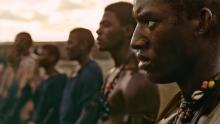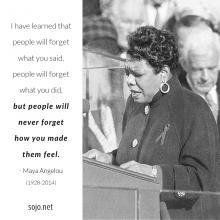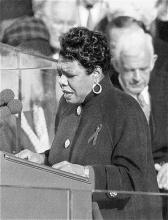roots

THE NATION'S FIRST blockbuster television miniseries, Roots, shocked the nation when it started airing on Jan. 23, 1977. Based on Alex Haley’s research on his own family’s story and adapted for television from Haley’s novel, Roots offered the world its first cinematic depiction of Africa and Africans unfiltered through the conduit of Hollywood’s racialized imagination. White Tarzan and Jane were nowhere to be found in Juffure, Gambia. Kunta Kinte was the leading man. Fanta was his ingénue—black ... and beautiful.
For eight nights the Kinte family unfolded from generation to generation, focused on individual family members’ struggles against generations of evil white slave masters.
But the 2016 “reimagined” version of Roots places the snatched descendants of Omoro and Binta Kinte squarely within the unyielding machine of the international slave trade—an economic system that, fundamentally, sought the well-being of European nations at the expense of the rest of the world.
In 380 B.C.E., Plato articulated a grand idea in his treatise The Republic. There is this thing called “race,” he posited. Race is determined by the kind of metal a person is made of, he said: silver, gold, iron, or copper. A person’s race determines how that person serves society.
The transatlantic slave trade took Plato’s notion and expanded the “republic” to encompass the world. Guided by Western philosophers’ notions of human hierarchy, Western popes and monarchs declared the right of Europeans to enslave “uncivilized” peoples for the benefit of the crown. It didn’t take long for Plato’s copper and gold to morph into Virginia judicial law that delineated between slaves and servants based on skin color. Colonial “races” became white, black, and red.

When I heard the news I wept.
“Renowned Poet and Author Maya Angelou Dies at 86,” read the NBC News headline.
My fruitless effort to hold back tears was proven vain as I made my way into the bowels of a D.C. Metro station — tears streaming. I felt silly.
“Why am I crying,” I thought. “I didn’t know Maya Angelou.” I met her once, but she wasn’t family or a close friend, yet I was reacting with the same profound sense of loss, as if my own beloved great grandmother had passed?
The New York Times called her a “lyrical witness of the Jim Crow South” in the headline that announced Ms. Angelou’s death this morning. But for nearly four decades Dr. Maya Angelou served as a kind of great grandmother of the African-American community — a bridge between the ancestors and us.

Maya Angelou, a renowned author, poet and civil right activist, has died at 86. Angelou, know for her autobiography I Know Why the Caged Bird Sings, also authored six other autobiographies along with numerous collections of poems.
Throughout her career, Angelou she was active in the Civil Rights movement, working with Martin Luther King, Jr. and Malcolm X. She also served a one point as the Northern Coordinator for the Southern Christian Leadership Conference, a group founded following the Montgomery Bus Boycott by Dr. King and others.
NBC News reports her numerous achievements:
Angelou was born on April 4, 1928, in St. Louis, Missouri, under the name Marguerite Annie Johnson. She grew up to become a singer, dancer, actress, writer and Hollywood's first female black director.
Angelou had an impressive list of accolades: She was a three-time Grammy winner and was nominated for a Pulitzer, a Tony, an an Emmy for her role in the groundbreaking television mini-series "Roots."

Whether churchgoers realize it or not, the trees in their churchyards have religious roots.
Those tall, thin-branched trees on the corner of this city's Episcopal Church Center of Utah, Purple Robe Black Locusts, were probably named after a biblical reference to John the Baptist eating locusts and honey.
Nearby, the crab apple tree just outside the Episcopal Cathedral Church of St. Mark produces a small, sour fruit used by 15th-century monks to treat diarrhea, dysentery, and gallstones.
And the flowers of a nearby dogwood tend to bloom around Easter.
“My hope,” said University of Utah biology professor Nalini Nadkarni, “is [worshippers] will realize that nature and trees are as much a part of their sacred ground and worthy of reverence as what goes on inside a cathedral or church.”
Jonathan Wilson-Hartgrove and Isaac S. Villegas are friends and fellow kingdom-bringers in Durham, North Carolina. Since publishing The Wisdom of Stability in 2010, Jonathan has been calling Christians to put down roots and pay attention to place for the sake of God’s reign. Isaac has gently challenged him to recognize the dangers of stability and the way immigrants or marginalized members of a community are often excluded by those who “own their place.” They offer their conversation as an invitation to discern with them a theology of place for our time.
Isaac S. Villegas: I was working alongside a little girl in our congregation’s community garden at the women’s shelter in Chapel Hill. As we were digging, she looked up at me and said that her mom warned her to beware of lice when playing outside. I reassured her that I hadn’t seen any lice around, but I asked her if she knew what to look out for. “Yes,” she said. “My mom told me to watch out for Mexicans because they bring lice.” I looked down at my hands, wondering if my hue revealed that I’m from lands further south than Mexico. Will this child grow up to think that people like me don’t belong in the South, that we are social contaminants, that our cultures dirty the body politic, that we spread lice?
These are the questions that linger in my mind when I hear my friend Jonathan argue for a recovery of “the wisdom of stability” in the Christian community. In this land where both Jonathan and I live, I’m uneasy when I hear “stability” because I see how such rhetoric belongs to a particular Southern tradition. I am the foreigner, of questionable lineage, that the people who’ve been here longer can reject or accept—reject because they think that I’m a threat to the stability of the community, or accept because they think I will contribute to a sustainable future. In either case, the assumption is that they are the ones entrusted with the land and culture. Arguments about stability have fueled people’s claims to own or steward the land and their assumption that they are the gatekeepers of society, deciding who belongs where.
“I hope to reprogram your default setting,” Jonathan writes in his book. “Our default is to move.” Instead of movement, he points to the witness of trees, which serves as the book’s focal image: “Trees can be transplanted ... But their default is to stay.” I worry that to celebrate stability as the solution to movement renders recent immigrants as defective Christians—wild, unruly, in need of reprogramming.
Movement is my default setting: It’s in my immigrant blood; it’s the story of my family. While the wisdom of stability privileges the parts of the Bible that call us to permanency, I find good news in the biblical stories of wandering, exodus, relocation, and mission. These stories resonate with the lives of migrants—people who are not trees, but birds: always building and abandoning nests as they follow the seasons.
Jonathan Wilson-Hartgrove: Every writer needs friends who remind them that words can be dangerous. I’m grateful for Isaac, who keeps me thinking hard about what I’m saying and why.
Shortly after The Wisdom of Stability was published, I got a call from the director of a mission agency who’d read the book. He asked if I’d come and speak to the global gathering of the group’s staff. I’d love to, I told him, but wondered why they thought a word on stability was needed. “Well, we have a problem in missions,” he said. “We keep sending people who’ve never belonged anywhere. They don’t seem to have much capacity to connect with the places where we send them.”
Hundreds of miners, activists, students, academics, environmentalists, and other citizens are marching to West Virginia's historic Blair Mountain in an effort to save it from mountaintop removal.
Recently, Wikileaks, an online whistleblower site, released a video which was dubbed "Collateral Murder." I write as a former member of the Infantry c